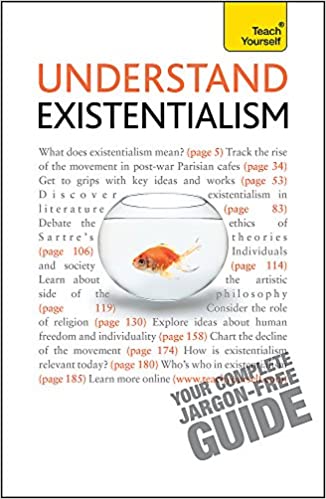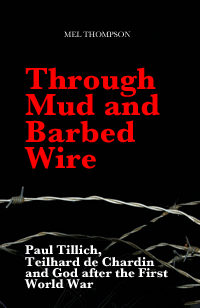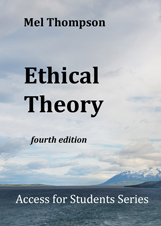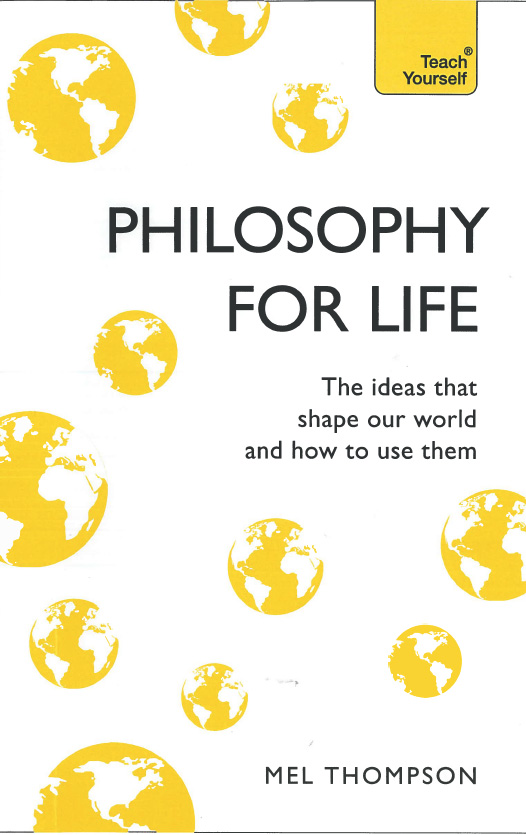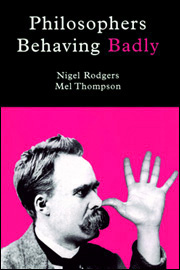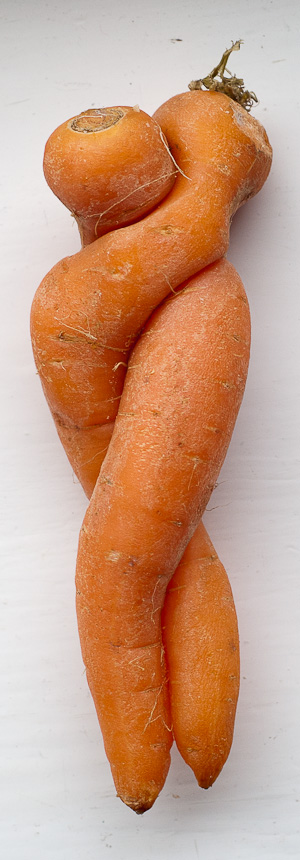Should you remove your clothes before asking yourself existential questions?
I could describe myself as an occasional naturist. I'm not fanatical about it, but, given a chance, I enjoy being outdoors naked. I also find that it can stimulate (if that's the appropriate word) thoughts of a philosophical and existential nature.
When you appear naked in public, you really cannot pretend to be other than you are. You arrive at the most basic of identities: a human being of a certain gender, age and weight, more or less wrinkled, more or less comfortable in your own skin. Forget Eden; this is the starting point for asking yourself the questions that shape your life. Perhaps you realise, as you relax back naked, that you neither like nor need your normal wrappings, physical or social.
In Waldon, Henry David Thoreau commented: 'It is an interesting question how far men would retain their relative rank if they were divested of their clothes.'
So here's a short extract about nakedness from my recent book, Home: a philosophy of personal space. It recalls some philosophical musings in the naturist corner of a hotel on La Palma in March 2019, immediately before Spain went into its first Covid lockdown. And, just in case you're wondering what on earth the shedding of clothes has to do with either 'home' or 'personal space', I'll append a brief explanation.
Below it, I include a short chapter, entitled 'Naked Thoughts', from my Philosopher's Beach Book published by Hodder in 2012. It shows that my inclinations have not changed over the years.
You may, of course, read this fully clothed, but for a full appreciation, given warm weather ...
Here's an extract from Home: a philosophy of personal space.
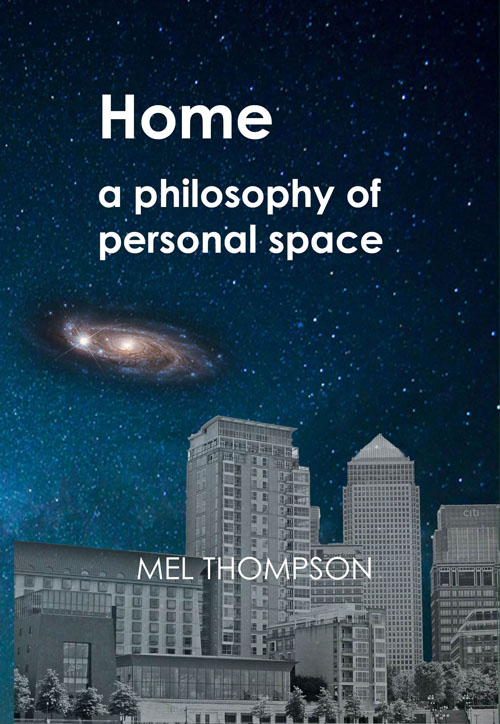 By the pool
By the pool
Sometimes our sense of identity is bizarre. I have to confess – if confession is appropriate – that the notes for this section are being jotted on a spiral notepad (there are times when a laptop just will not do), sprawled on a sun lounger in the naturist corner of a hotel on La Palma.
It’s a modest area – as befits its occupants – suitably screened from the rest of the hotel. A small pool, surrounded by decking and sun loungers, is bordered by shrubs and trees. Away from the crowds, the only sound here is the trickling of water flowing in and out of the pool, suddenly enhanced as a human body displaces its volume into the overflow channels.
Objectively, we appear a sad bunch. All of us are of an age that suggests we first stripped off in the 1960s or 70s, and are now in the stage of life when the battle against gravity is lost. We pad around, comfortable in our own skins, happy to be in this open, vulnerable state, totally in the environment, with the touch of air and sun on the body, the sense of being utterly in nature and totally accepting of ourselves for who and what we are. No attempt here to preen. Bliss!
And this too offers a sense of home: a shared home, a global home perhaps. Unless they speak, I have no idea of the nationality of my fellow naturists, for here nationality is invisible. Nor, once undressed, can we use any of the little tokens of social status that clothes convey.
So I find myself, surrounded by other people, mostly senior, sunning themselves, sleeping, minding their own business, taking the occasional dip. It is curiously un-cool. Gone is the sexiness of skimpy clothes designed to distract from bodily imperfections. Here we face the naked truth. We are a motley crew, brought together by the simple fact that shedding clothes is yet another way to be ‘at home’.
Nakedness defines a small part of our maps and thus contributes to our identity. We ‘belong’ here because of who we are, but being here also contributes to who we are.
Sadly, just a few days later, the area was closed and taped off, the trickling water silenced and the steps into the pool removed; Spain had gone into its Covid-19 lockdown. The virus now imposed upon us a natural equality that previously we had chosen by going naked.
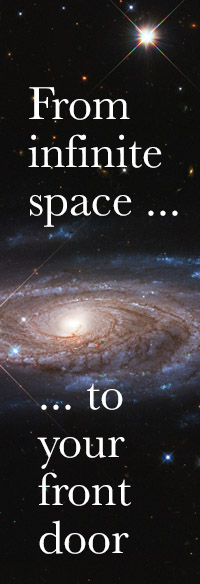 Home?
Home?
So what, you may ask, has this to do with 'Home'? My argument in the book is that our lives are shaped by the personal maps we impose over our world. At every moment, we scan our experience for places, people, situations and ideas with which we identify and feel comfortable. We crave a sense of belonging; we want to construct a sense of 'home'.
That lies beneath the attractions of religion or community identity; in distorted form, it creates nationalism, racism, sexism and all the other divisions based on identity difference. Neuroscience will never describe us adequately, for we are constantly shifting and re-shaping ourselves through our commitments and desires.
Where, in life, do we really want to be? The key question is not 'Who are you?' but 'Where do you belong? For me, therefore, belonging naked around that pool is part of what makes me who I am.
'Home' explores both the cosmic and the domestic. It's not just about your past, but also your future. It concerns your aspirations as much as your achievements; where you're headed as much as where you're from.
And from The Philosopher's Beach Book ...
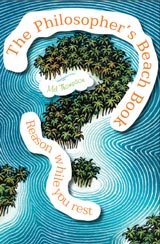 Naked thoughts?
Naked thoughts?
George Formby got his cheeky implications wrong. In his ‘Hi-Tiddly-Hi-Ti Island’ (a Pacific beach paradise with fantasy images to rival Gaugin, but without the latter’s sinister side) he offers what appears to be an escalating scale of sexual provocation when he suggests that ‘the girls there are all full of sport’ leading to ‘and wear their frocks a trifle short’, and ending with ‘and some are simply wrapt in thought’ in Hi-Tiddly-Hi-Ti Isle. Trouble is, it doesn’t quite work like that – and never did, not even in the 1950s when he recorded the song. No; when it comes to nakedness, glimpses of flesh and whisps of material are always going to be more sexy than straightforward, in-your-face, all-shapes-and-sizes-accepted nakedness.
We’ve already looked at paradise, so what about nakedness? Should the genuine philosopher, straining to appreciate the existential implications of being alive, prefer to be naked on the beach?
Among ‘textiles’, nakedness is associated with sex; but among the naturist fraternity it is just the most beautiful and natural way to be. Feeling the breeze and sun on your body, outside with no clothes on, you feel ‘in’ the world in a way that the clothed cannot. Even under an overcast sky, with a breeze whipping in off the water, there is something wonderful and liberating about displaying your goose bumps to the universe at large.
And clothes are problematic anyway. They make social and existential statements that may or may not reflect the reality of who we are. Uniforms take away our individuality and encourage us to conform to the social role they represent. A major feature of the ingenuity of British teenagers lies in modifying their school uniform in a way that is provocative and rebellious while remaining just about within the letter of the school law. But clothes make statements in so many ways: the hijab and burqa, the veil, the clerical collar, the punk outfit, the studded leather jacket, the judge’s wig. Clothes are eloquent. But are they necessarily honest? Martin Heidegger, in his Being and Time (caution: this is a great book, but not an easy read), argued that we are often tempted to adopt particular social masks rather than being ourselves, to play a role rather than act with authenticity. Clothes play a large part in affirming such masks.
Clothes may also reflect the wearer’s attitude. The extreme example of this is The Dandy – the title also of a new book from Nigel Rodgers. He makes the point that Dandyism is not simply a matter of fastidiousness of dress, it is a way of thinking about oneself, an aloofness of thought and behaviour, an elevated state of mind. At a more mundane level, designer labels perform the same function – they say more about you than flesh ever can.
But there is a negative side to nakedness, for it is associated with death and with poverty. We are encouraged in the New Testament to clothe the naked as a means of giving them basic aid, and none can forget the terrible images of naked bodies piled up in heaps at Auschwitz. To choose to be naked is one thing, to have it imposed is quite another. Those who are naked have no status, they reveal their human vulnerability; to humiliate someone, first remove their clothes.
But ever since Adam and Eve were said to feel shame at their nakedness, and reached for the fig leaves, a minority of religious people have been trying to regain their lost innocence. A major dispute within the Jain community in its early days was whether monks should remain naked (‘sky clad’ was the delightful term used) or accept a simple form of clothing. Some became clothed, but nakedness remained the ideal. Nakedness for the Jain is a sign of renunciation, of absolute simplicity and innocence. Those who have nothing, not even clothes, symbolise the value of non-possessiveness. And that, of course, holds true for the long tradition of naked asceticism within Indian religions. Of course, the temperature helps; naked ascetics do not thrive in polar regions.
Simplicity is one thing, innocence another, and the quest for innocence through nakedness is best exemplified in the Adamites, a 17th century English sect who undressed to worship. Nakedness expressed innocence, absolute equality (and, no, we’re not talking physical features of a personal kind) and open honesty within the community. They saw it as a return to the Garden of Eden, a celebration of what humankind was meant to be, going naked and unashamed before God.
So, as you look about you on your literal or metaphorical beach, consider what the textiles are saying with their clothes, however casual or minimal; from designer gear to distressed jeans, clothes are eloquent at presenting a personal image that may or may not be the truth about the wearer. Clothes categorise people and therefore also divide them. By contrast, there is a natural camaraderie on a naturist beach.
And if philosophy, particularly of the existentialist sort, includes exploring who we are and how we relate to the world and to other people, affirming ourselves in honesty and acting with authenticity, would it not be better of philosophers remained naked? Weather permitting!!

